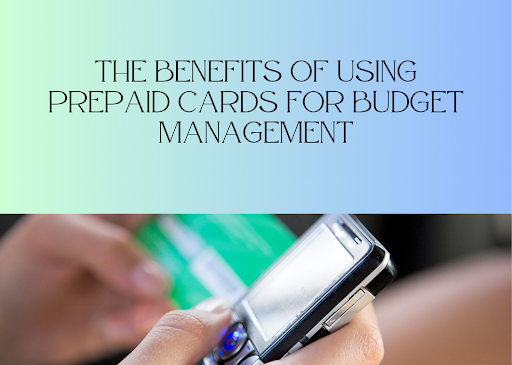Prepaid cards are an effective tool for managing personal finances and budgets. This article explores how prepaid cards can help individuals control spending, avoid debt, and track expenses. It also discusses the advantages of using prepaid cards for specific purposes, such as travel and online shopping, and how they provide a secure alternative to traditional credit cards.
Controlling Spending:
Prepaid cards are an excellent way to control spending because they require you to load funds onto the card before making purchases. This means you can only spend the amount you have preloaded, preventing overspending and helping you stay within your budget. By using a prepaid card, you can allocate specific amounts for different expenses, such as groceries, entertainment, and transportation.
Avoiding Debt:
One of the key benefits of prepaid cards is that they help you avoid debt. Unlike credit cards, prepaid cards do not allow you to borrow money. This eliminates the risk of accruing interest charges and falling into debt. For individuals who struggle with managing credit card debt, prepaid cards offer a practical solution for maintaining financial discipline and living within their means.
Tracking Expenses:
Prepaid cards provide an easy way to track expenses. Most prepaid card providers offer online account management tools that allow you to monitor your spending in real-time. You can view transaction history, check balances, and set up alerts for low balances or suspicious activity. This transparency helps you stay on top of your finances and make informed decisions about your spending habits.
Travel and Online Shopping:
Prepaid cards are particularly useful for travel and online shopping. When traveling, using a prepaid card can help you manage your travel budget and avoid currency exchange fees. For online shopping, prepaid cards offer an added layer of security by limiting the amount of money that can be accessed in case of fraud. Using an online prepaid card for these purposes can provide peace of mind and financial control.
Teaching Financial Responsibility:
Prepaid cards can be an excellent tool for teaching financial responsibility to teenagers and young adults. By giving them a prepaid card with a set amount of funds, parents can help their children learn to budget and manage money effectively. This hands-on approach to financial education allows young people to understand the value of money and the importance of spending within their means.
Benefits for Business Expenses:
Businesses can also benefit from using prepaid cards to manage employee expenses. Prepaid cards can be issued to employees for travel, meals, and other business-related costs, ensuring that spending stays within the company’s budget. This method simplifies expense tracking and reimbursement processes, as all transactions are recorded and can be easily reviewed. Businesses can also set limits on each card to prevent overspending.
Case Study: Effective Budget Management
A college student using a prepaid card for monthly expenses found it easier to manage their budget and avoid overspending. By loading a specific amount onto the card each month, the student could allocate funds for essentials like textbooks, groceries, and entertainment. This method not only helped them stay within their budget but also instilled good financial habits that would benefit them in the future.
Conclusion:
Prepaid cards offer numerous benefits for budget management, including controlling spending, avoiding debt, tracking expenses, and providing a secure payment method for travel and online shopping. They are also useful for teaching financial responsibility and managing business expenses. By adopting prepaid cards, individuals can enhance their financial discipline and achieve better control over their finances.




